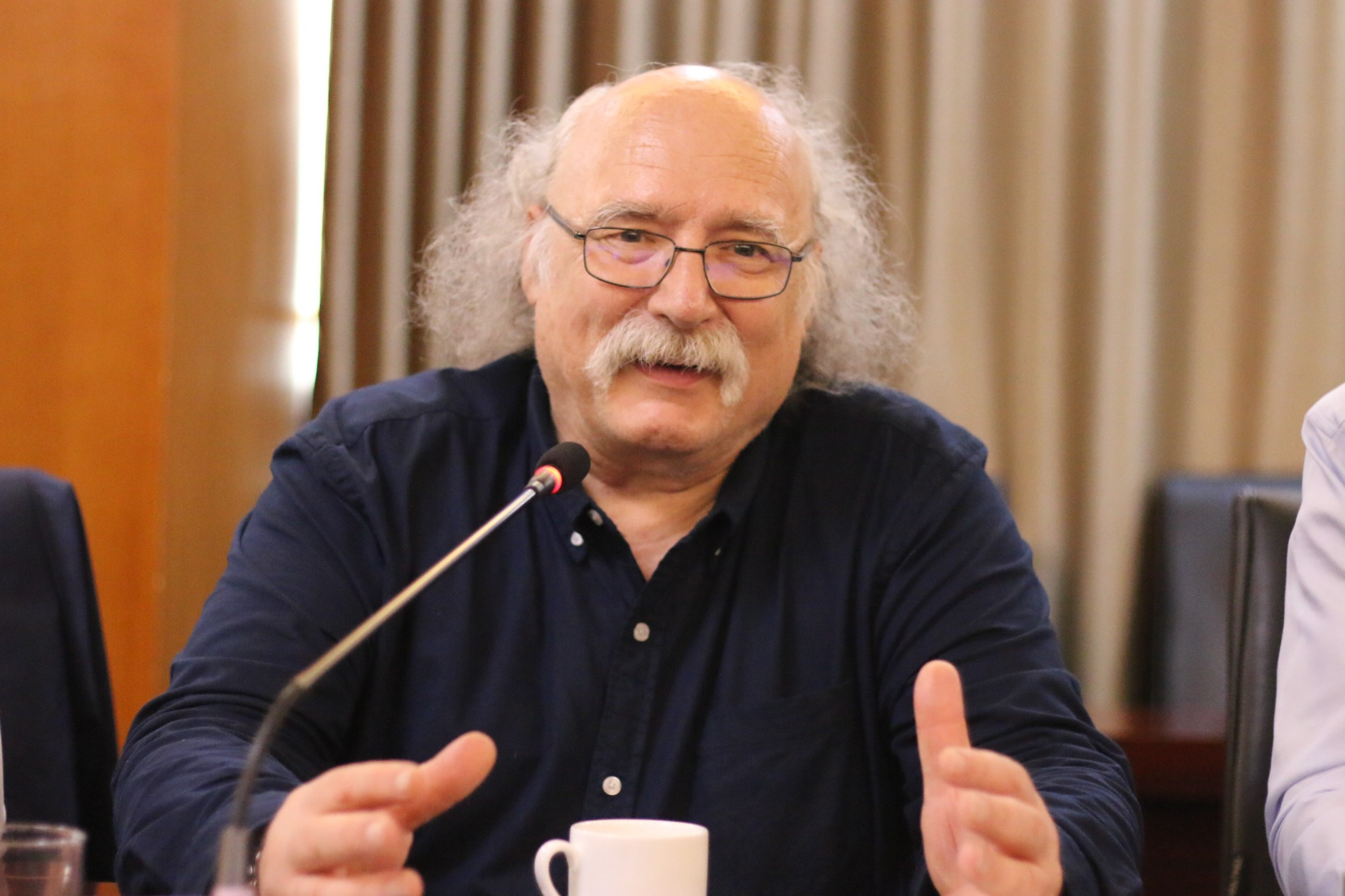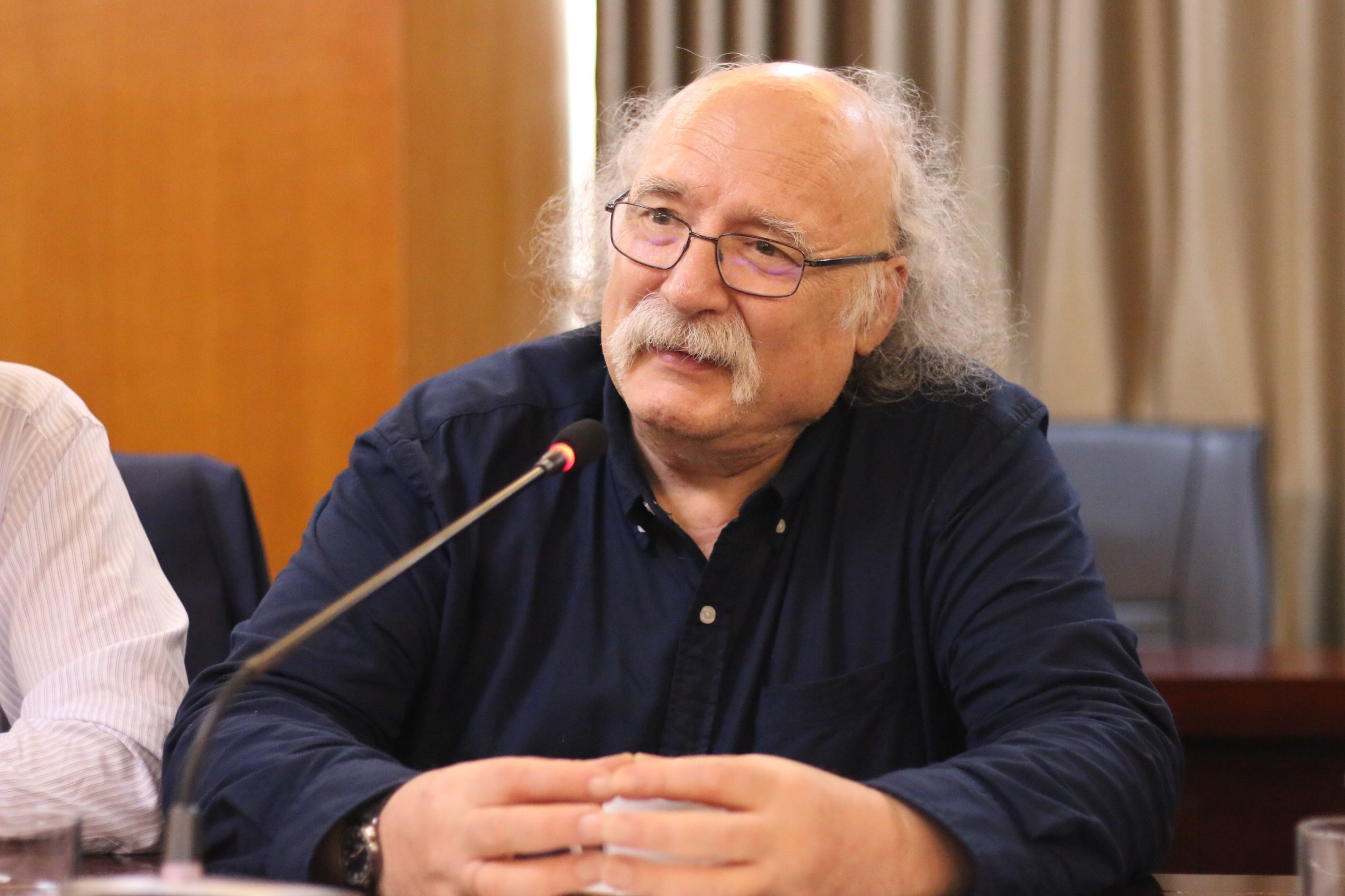
You say that you suffered from having difficulties publishing the first paper. How did you overcome it?
I felt confident in my result. I knew I was correct, But I haven't explained it well enough to people to understand it. But I came across a new way of looking at an old problem using new techniques I developed in my thesis.
So, I applied to a different problem where people thought they knew what the answer was. And I was very surprised to find out that according to my new way of looking at it, what people believed was just wrong.
So, I mean, a few things happened. I remember I was at a conference, and I gave my talk. Some senior scientists stood up and said this is nonsense.
Using perhaps slightly different language and the language I developed to describe the problem, I had some difficulties being accepted.
But science is not a question of opinion. There's a problem where you kind of come up with a death project you know who's right and who's wrong, but the science experiments the crucial thing and actually scientists love of controversy when there is like a competition between two theories or two ideas, people I hate, and they try to find out for themselves which is right and wrong.
And in fact, this controversy stimulated the development of a lot of new techniques both experimental and theoretical to come up with a verdict on whether it was right or wrong.
So, the little bit of evidence in favor of my predictions started to come in, although the people who oppose that will also attack but eventually very definitive experiments were done.
Maybe it was a good thing that people were upset about this because if they were just not interested, it wouldn't mean anything to me, but the fact that such many people came out publicly and said it was wrong and then the experiments show it was good for me because, you know, either they're stupid or brilliant.

What will be your suggestions for young scientists?
If you're convinced about your results, you must defend them. And of course, you also must take into account the possibility that you're wrong.
But so, you have to be honest with yourself, and if you're but so, one time I received another paper to review, which seemed to show a contradiction.
And for a few minutes, I was worried. But then I realized that the circumstances being described in these other papers, something special, and that's what it turned out to be. So, you have to, of course, try to be honest, in Judging your own work, right. But if you think it's right, you have to fight for it sometimes, especially if it challenges conventional opinion.
So, I was just as shocked as the conventional wisdom was when I found out when I thought it had to be wrong. So, it was a big surprise to me, I wasn't expecting such results. And it turned into something.
Many things grew out of this thing. So eventually it became quite an important piece of work. But at the time, I wouldn't have known it. But young people, it's often the young people buying something new and people who repeat what they've learned. And I think there are many things that we believe are true, that we teach our students because we were taught that and one day someone will find out that something we believe is true is not true.
So, the difficulty in science is in imagining new things. I think the most interesting scientific discoveries are made by a kind of accident.
They're made by people who were not expecting to discover anything, but their path took them close to some undiscovered secrets of nature. And they were prepared enough to see that it was something strange that they didn't expect.
But anything that people can imagine very smart people would have gone out and found the sciences. The remarkable thing about science is that, especially through experimental impractical things is coming across things which are true that they never even go to a true and meetings may take that time but eventually can lead to all kinds of new technologies and new ways.
The more we understand about the way the universe works and the way the world works, the more we have the capability to change it for our purposes.
What could be the role of basic science to support a certain development?
This is not just in developing countries, there is always a tendency for government ministries and finance ministries to say, we want to be useful.
Some of the most useful discoveries are, in some cases accidentally, from people looking at basic questions. So, it's, I certainly don't advocate that the complete size budget should be given to just basic science.
But some parts of the it's extremely healthy for some parts of the science budget, to be given the basic science and, more important, the people who decide which projects should be funded to the scientists themselves, because they are better placed to the interesting possibilities of a proposed project rather than the people in the ministry.
So, involving scientists in themselves, panels of scientists in the decision about what to advise the ministry about what to support is more important than they should be neglected now.
You know, there's a lot of, for example, in agricultural technology or things, basic science involving gene research and genetic manipulation can play an important role and just to completely focus on a project and say you have to go down this route. It prevents people from having the time to investigate something potentially interesting. That's not directly because they have to find something that's not directly related to the project.
So, a balance has to be found and it's an incorrect idea to say that a developing country should only support applied science. Basic research stimulates the whole atmosphere for improving applied science, too.
Can you share that experience: How to organize to promote scientific discovery? And how the university can learn from this organization to promote research at the highest level.
It's probably more like, the one hand is government funding agencies and in the United States they have supported basic science.
They started it off with the National Science Foundation. Its charter was told that it should support curiosity-driven research. So again, evaluate on panels of scientists to say what is interesting and worthwhile research to do and of course, other agencies fund more technological, military, or whatever type of research, but the basic science research had written into its charter.
It goes on to support curiosity-driven research, which was a very farsighted thing to do. I think after the Second World War, the United States realized that having scientists in the scientific community had played a vital role in their war efforts against Germany and Japan by seeing people stop doing their regular science and creating things like radar, and they and they realized that it was an important thing to have parts of the population that were important and technically literate.
And so, I think they adopted a policy that supported science because it was good. It was good for the general technological level of the country to have vibrant science going on.
Lan Anh